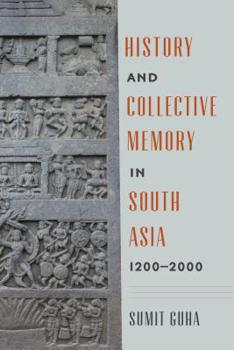History and Collective Memory in South Asia, 1200-2000
Select Format
Select Condition 
Book Overview
In this far-ranging and erudite exploration of the South Asian past, Sumit Guha discusses the shaping of social and historical memory in world-historical context. He presents memory as the result of both remembering and forgetting and of the preservation, recovery, and decay of records. By describing how these processes work through sociopolitical organizations, Guha delineates the historiographic legacy acquired by the British in colonial India; the creation of the centralized educational system and mass production of textbooks that led to unification of historical discourses under colonial auspices; and the divergence of these discourses in the twentieth century under the impact of nationalism and decolonization.
Guha brings together sources from a range of languages and regions to provide the first intellectual history of the ways in which socially recognized historical memory has been made across the subcontinent. This thoughtful study contributes to debates beyond the field of history that complicate the understanding of objectivity and documentation in a seemingly post-truth world.
Related Subjects
History




